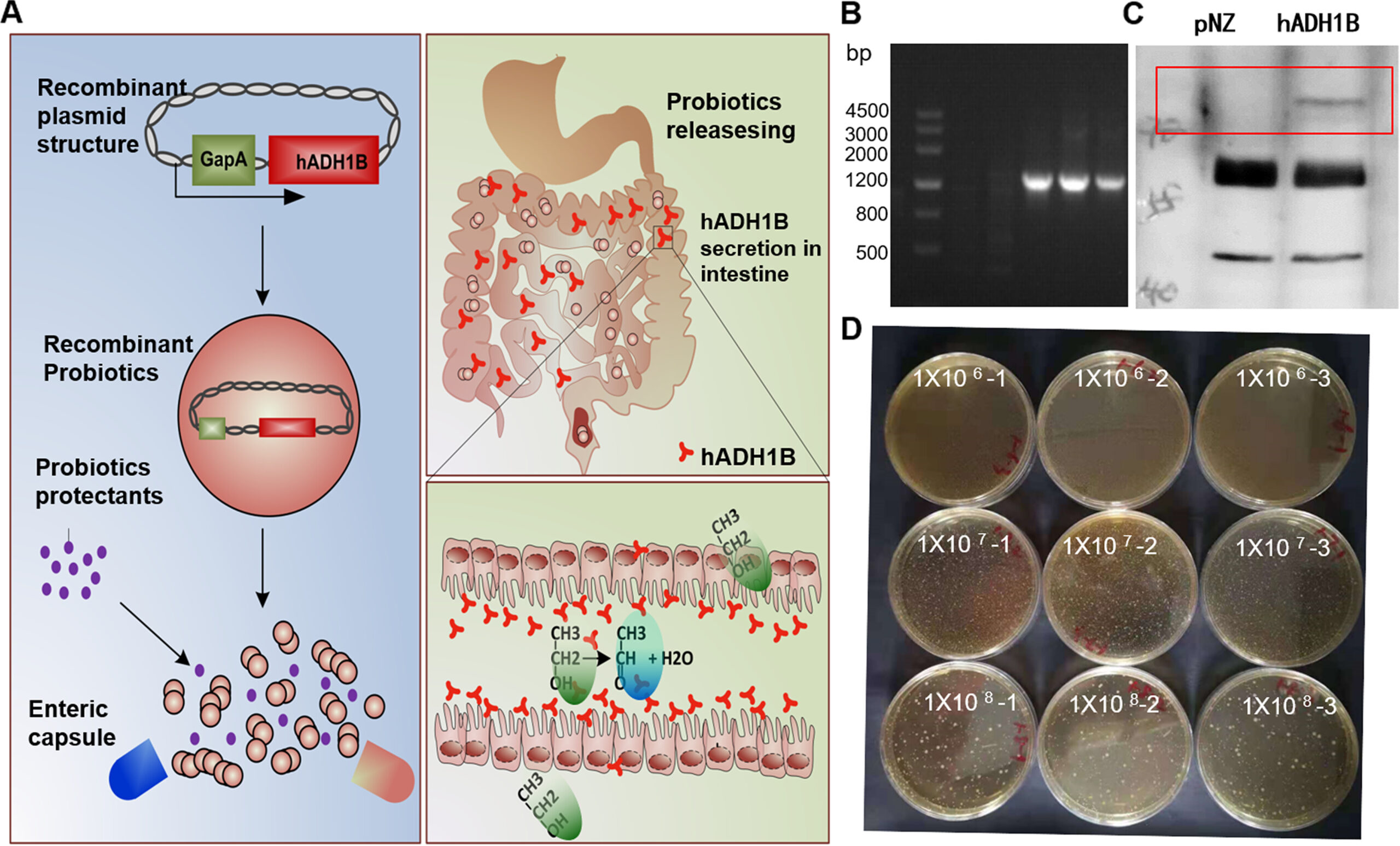Alcohol consumption affects the immune system of the gut, contributing to the immune deficiency associated with alcohol abuse. As alcohol enters the bloodstream, the cardiovascular system and liver are the main targets of damage, its secondary metabolite acetaldehyde directly attacks the nervous system, leading to a host of neurological problems. Approximately 90% of ethanol metabolism occurs in the liver, where alcohol dehydrogenase (ADH) metabolizes ethanol to acetaldehyde and then acetaldehyde dehydrogenase (ALDH) metabolizes acetaldehyde to acetate. Therefore, the rapid and effective removal of excess ethanol and its metabolite acetaldehyde has an important role in preventing liver damage. Authors in this study, found that recombinant probiotics could express ADH directly in the intestinal tract, decompose ethanol in a short time, and effectively reduce the negative effects on various organs; they produced a human ADH1B (hADH1B)-expressing probiotic, a recombinant lactobacillus lactis , that aimed to enhance alcohol degradation in the intestinal tract after oral administration. The engineered probiotic has the potential to protect organ damage from alcohol consumption and may have beneficial effects on alcohol-related diseases such as alcoholic fatty liver disease.
Link to the article : bit.ly/3V2dNr9
Published On: /04/2023
